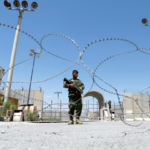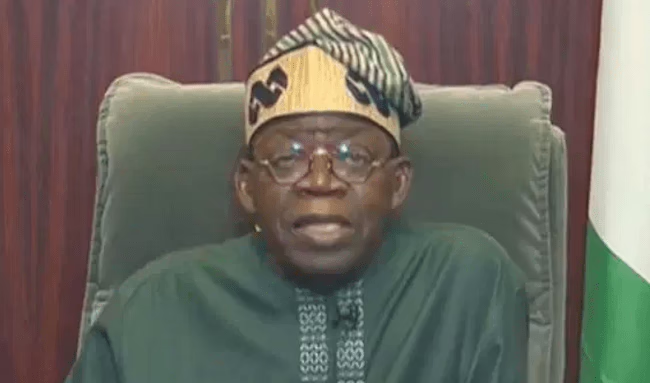The Socio-Economic Rights and Accountability Project (SERAP) alongside Amnesty International has called on President Bola Tinubu to instruct the Attorney General of the Federation and Minister of Justice, Mr. Lateef Fagbemi, SAN, to promptly drop all charges against activist Omoyele Sowore, as well as the owners of X (formerly Twitter) and Facebook. These charges relate to Sowore’s purportedly critical and ‘anti-Tinubu’ posts on these social media platforms.
Both organizations have also appealed for a directive to the Department of State Services (DSS) and other security agencies to immediately cease the misuse of judicial mechanisms aimed at suppressing public dissent. They condemned the use of Strategic Lawsuits Against Public Participation (SLAPPs) and similar tactics as tools for harassment that infringe on Nigerians’ fundamental rights.
Furthermore, SERAP and Amnesty International urged President Tinubu to mandate Mr. Fagbemi to draft and present anti-SLAPP legislation to the National Assembly without delay. This law would serve to shield Nigerians from the exploitation of the justice system by security agencies and uphold the right to freedom of expression.
In a joint letter dated 20 September 2025, signed by SERAP’s deputy director Kolawole Oluwadare and Amnesty International Nigeria’s director Isa Sanusi, the groups emphasized that weaponizing the judiciary to stifle peaceful dissent contradicts both the Nigerian Constitution (1999, as amended) and Nigeria’s international human rights commitments.
They highlighted that SLAPP suits and criminal defamation cases are neither justified nor proportionate under the Nigerian legal framework or international human rights treaties to which Nigeria is a party. Such legal actions create a chilling atmosphere that discourages the free exchange of ideas and the exercise of human rights.
The letter also noted an ongoing lawsuit before the ECOWAS Court challenging the compatibility of the Cybercrime (Prohibition, Prevention, etc.) (Amendment) Act 2024 with constitutional guarantees of freedom of expression and access to information.
According to the groups, until the court delivers its verdict, the DSS and other law enforcement bodies must refrain from using the amended Cybercrime Act as a pretext to silence peaceful critics.
The letter further stated: “Your administration bears the legal responsibility to prevent the misuse of judicial processes to intimidate Nigerians exercising their rights peacefully and to uphold the integrity, independence, and fairness of the ongoing litigation concerning the Cybercrime Act before the ECOWAS Court.”
They stressed that SLAPP and criminal defamation lawsuits undermine the core values of democracy, which Nigeria aspires to uphold. Public officials and political figures should expect and tolerate a higher level of scrutiny and criticism due to their public roles.
Moreover, Nigerian authorities have both a negative duty to avoid unjust interference with human rights and a positive duty to actively protect and promote these rights.
Freedom of expression is a cornerstone of democracy and essential for individual liberty and societal progress. Any limitations on this right must be lawful, pursue legitimate aims as outlined in the Nigerian Constitution and international treaties, and be necessary and proportionate.
Judicial bodies within Nigeria and regional human rights courts have consistently ruled that politicians must endure more intense criticism than private citizens. These courts have rejected defamation laws as tools to suppress dissent.
The use of SLAPP suits and criminal defamation by security agencies to silence opposition poses a significant threat to democratic participation and the rule of law.
The groups requested that these recommendations be implemented within seven days of receiving or seeing the letter. Failure to comply would compel them to pursue all available legal remedies, including actions before the ECOWAS Court of Justice, to ensure government accountability in the public interest.
RELATED: EFCC Collaborates with Korean Police Agency to Combat Financial Crimes
According to their information, the Federal Government recently filed charges against Sahara Reporters publisher and activist Omoyele Sowore, as well as the owners of X and Facebook, over Sowore’s alleged ‘anti-Tinubu’ social media posts.
Two of the charges stem from the Cybercrimes Act, while three others-criminal defamation, causing public fear, and disturbance-are based on the Criminal Code Act.
The case, initiated on 16 September 2025 at the Federal High Court in Abuja, followed Sowore’s refusal to remove posts deemed critical of President Tinubu. The charges were brought by the Director of Public Prosecutions at the Ministry of Justice on behalf of the DSS and the Federal Government.
In May 2025, the DSS also filed a SLAPP suit against Professor Pat Utomi, a former presidential candidate, accusing him of attempting to unlawfully usurp President Tinubu’s executive authority by establishing a shadow government.
This suit, registered as FHC/ABJ/CS/937/2025 at the Federal High Court in Abuja, alleged that Utomi’s actions threatened national security and constitutional order. Utomi was the sole defendant.
Additionally, in October 2024, DSS operatives initiated a SLAPP lawsuit against SERAP, accusing the organization of unauthorized office invasion.
These instances exemplify the increasing reliance on SLAPP lawsuits by the DSS and other security agencies in Nigeria to intimidate and harass citizens peacefully exercising their rights.
The groups expressed concern that SLAPP suits have a suppressive effect on freedom of expression and other fundamental rights protected by the Nigerian Constitution, the International Covenant on Civil and Political Rights, and the African Charter on Human and Peoples’ Rights.
They reminded that the Nigerian Constitution and these treaties obligate the government to guarantee a broad spectrum of human rights, including freedom of expression, peaceful assembly, association, and participation in public affairs.
The letter acknowledged President Tinubu’s repeated pledges to uphold Nigerians’ fundamental rights, citing his inaugural speech and his address to the Joint Session of the National Assembly on Nigeria’s Democracy Day, 12 June 2025.
Specifically, in paragraph 39 of that address, the President stated, “We dare not seek silence because the imposed silence of repressed voices breeds chaos and ill will, not the harmonics of democracy in the long term.”
In paragraph 40, he added, “No one should bear the brunt of injustice for merely writing a bad report about me or calling me names. Democracy requires a fair degree of tolerance for harsh words and stinging insults. Call me names, call me whatever you will, and I will still call upon democracy to defend your right to do so.”
The groups also referenced the ECOWAS Court of Justice’s ruling on 25 March 2022, which ordered Nigerian authorities to cease using section 24 of the Cybercrime Act 2015 to prosecute individuals for insulting or stalking public officials online.
The Court described section 24 as “arbitrary, vague and repressive” and mandated its repeal to align with Nigeria’s human rights obligations. Although the 2024 Cybercrime (Amendment) Act repealed section 24, it failed to address the problematic nature of the provisions fully.
They expressed apprehension that the vague definition of “causing a breakdown of law and order” in section 24(1)(b) of the amended law could be misapplied to punish peaceful and legitimate expression, leaving room for abuse.
Moreover, the Act’s broad definition of “cyberstalking” in section 58 as “a course of conduct, directed at a specific person that would cause a reasonable person to feel fear” is overly punitive and lacks adequate safeguards to protect lawful human rights activities.
The Cybercrime (Amendment) Act 2024’s provisions, whether framed as cyberstalking, criminal defamation, seditious libel, or false news, disproportionately penalize individuals and restrict public discourse on matters of genuine public interest.
The UN Human Rights Committee, which monitors compliance with the International Covenant on Civil and Political Rights, emphasized in General Comment No. 34 that uninhibited expression holds exceptional value in public debate.
The Committee clarified that merely insulting a public figure does not justify penalties and affirmed that all public officials, including heads of state and government, are legitimately subject to criticism and political opposition.
It further urged states, including Nigeria, to decriminalize defamation, noting that criminal sanctions are excessive punishments for reputational harm and must not infringe on freedom of expression and information.

















